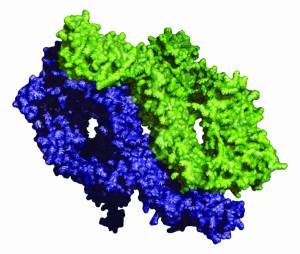 Congratulations to Dr. Jianhua Xing for receiving a 4-year, 700K NSF grant!
Congratulations to Dr. Jianhua Xing for receiving a 4-year, 700K NSF grant!
Title: “Collaborative Research: Modeling the Coupling of Epigenetic and Transcriptional Regulation”
PI: Jianhua Xing, Guang Yao (University of Arizona)
Overview: Cells sharing the same genome can exist in different phenotypes, raising a long-standing fundamental question in developmental biology: how a fertilized egg differentiates into cell types with distinct physical, chemical, and biological properties? Recent Nobel prize-winning work on cell reprogramming further indicates the importance of understanding how a cell controls its phenotype by regulating its gene expression program. Accumulating evidences reveal the critical role of epigenetic modifications on gene regulation. Epigenetic regulation refers to inheritable changes of gene expression caused not by changes in DNA sequence (i.e., mutations), but by non-genetic marks on chromatin (i.e., “epigenetic markers” such as DNA methylation and histone acetylation and methylation). Despite extensive studies, the quantitative nature of epigenetic regulation remains largely elusive.
The proposed research will use integrated experimental and computational approaches to reveal how histone modfications and gene transcription are coupled in mamallian cells.

 Dr. Armaghan (Rumi) Naik and Dr. Joseph C. Ayoob received an award from the Mentoring in Active Learning and Teaching (MALT) Fellowship.
Dr. Armaghan (Rumi) Naik and Dr. Joseph C. Ayoob received an award from the Mentoring in Active Learning and Teaching (MALT) Fellowship. “Understanding how genes co-evolve in animals could reveal links between human diseases”
“Understanding how genes co-evolve in animals could reveal links between human diseases”